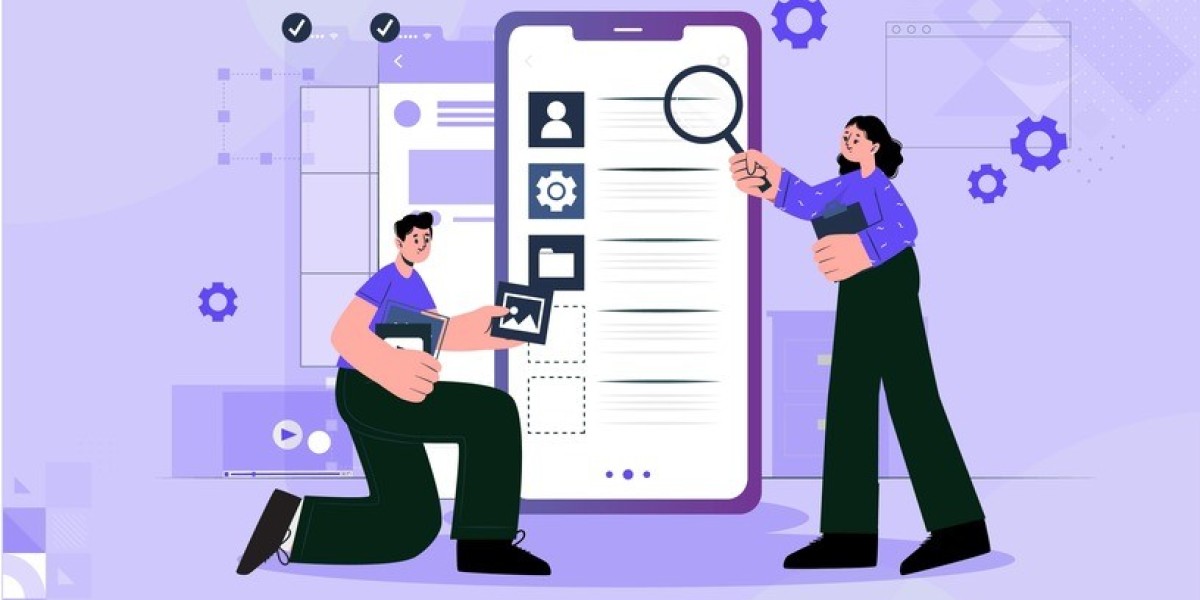As mobile app development continues to evolve at a rapid pace, the role of quality assurance (QA) becomes increasingly vital. QA serves as a critical component in the app development process, ensuring that the final product meets the highest standards of functionality, performance, and user experience.
From the early stages of development to the final release, QA professionals meticulously test every aspect of the app to identify and resolve any issues or glitches that may impede its performance.
Quality assurance in mobile app development involves a comprehensive and systematic approach to testing. QA professionals work closely with developers to understand the app's specifications and requirements, creating test plans that cover various scenarios and user interactions. They conduct rigorous testing across different devices, operating systems, and network conditions to ensure that the app performs flawlessly in all environments.
Moreover, QA teams implement best practices and industry standards to thoroughly assess components such as user interfaces, navigation, responsiveness, security, and overall functionality. By adhering to these rigorous testing protocols, QA plays a crucial role in delivering high-quality mobile apps that satisfy user expectations and drive success in the ever-competitive app market.
Ensuring Smooth User Experience through Testing
In today's highly competitive app market, ensuring a smooth user experience is crucial for the success of any mobile application. Testing plays a pivotal role in achieving this desired outcome.
Through rigorous testing processes, developers can identify and address any flaws or glitches that may compromise the overall user experience. By focusing on factors such as usability, functionality, performance, and compatibility, developers can fine-tune their app to provide a seamless and enjoyable experience for the end-users.
One important aspect of testing for a smooth user experience is usability testing. This involves evaluating how easily users can navigate through the app, understand its features, and accomplish their goals. Usability testing helps identify potential bottlenecks, confusing interfaces, or any other usability-related issues that could impact user satisfaction.
By gathering feedback from actual users and incorporating their insights, developers can make informed design decisions and ensure the app is intuitive and user-friendly. Ultimately, a well-tested app with a smooth user experience will not only attract more users but also enhance customer loyalty and increase the likelihood of positive reviews and recommendations.
Key Challenges in Mobile App Testing and How to Overcome Them
Mobile app testing services play a crucial role in ensuring that apps meet the expectations of users. However, this process is not without its challenges. One of the key challenges is the sheer number of device and platform variations. With the ever-expanding market of smartphones and tablets, app developers need to consider testing their apps on various devices and operating systems. This means testing the app on different screen sizes, resolutions, and hardware specifications. Without proper testing, it is difficult to identify and fix bugs or compatibility issues that may arise on specific devices or platforms.
Another challenge in mobile app testing is the dynamic nature of mobile devices. Unlike traditional desktop or web applications, mobile apps are used in different contexts and environments. This poses a challenge in terms of performance testing and ensuring the app functions seamlessly across various network conditions and device states.
For instance, an app that works flawlessly on a high-speed Wi-Fi connection may encounter difficulties when used on a slower cellular network. To overcome these challenges, testers need to simulate real-world usage scenarios and test the app under different network conditions to ensure optimal performance and functionality.
• Testing on various devices and operating systems
• Testing on different screen sizes, resolutions, and hardware specifications
• Identifying and fixing bugs or compatibility issues specific to certain devices or platforms
• Ensuring app functions seamlessly across various network conditions and device states
• Simulating real-world usage scenarios for performance testing
• Testing the app under different network conditions to ensure optimal performance
Different Types of Testing for Mobile Apps
There are various types of testing that are important in the development of mobile apps. One of the most common types is functional testing, which involves checking if the app performs its intended functions correctly. This includes testing features, navigation, and user interactions to ensure that everything works as expected.
Another important type of testing is performance testing, which assesses the app's speed, responsiveness, and stability under different conditions. This type of testing is crucial to ensure that the app can handle large volumes of data and remains efficient even during peak usage.
Furthermore, security testing is essential for mobile apps, considering the increasing number of security threats. It involves checking for vulnerabilities and ensuring that confidential user data is protected. This type of testing focuses on detecting potential risks and implementing measures to mitigate them.
In addition to these types of testing, compatibility testing is also crucial. It ensures that the app functions correctly on different devices, operating systems, and screen sizes. This is essential since mobile apps are accessed by users using a variety of devices, and the experience should be consistent across all of them.
To ensure the success and quality of a mobile app, it is important to consider and perform various types of testing throughout the development process. By incorporating functional, performance, security, and compatibility testing, developers can identify and resolve any issues before the app is launched, guaranteeing a smooth and satisfying user experience.
Best Practices for Mobile App Testing
To ensure the success of a mobile app, thorough testing is essential. Adopting best practices for mobile app testing can help identify and rectify any potential issues before the app is launched to users.
Firstly, it is important to establish a comprehensive test plan that covers all aspects of the app. This plan should include a variety of test cases that address different functionalities, user scenarios, and device types. Conducting both manual and automated testing can help ensure that the app performs smoothly across various environments and devices. Additionally, regular regression testing should be carried out to identify any new issues that may arise after implementing fixes or updates.
Secondly, it is crucial to have a well-defined and collaborative testing process. This involves close communication and coordination between the development and testing teams. Clear documentation of test cases, results, and issues should be maintained to facilitate effective tracking and resolution. Moreover, establishing a feedback loop with beta testers and gathering user feedback can provide valuable insights for further improvements.
By adhering to these best practices, mobile app testing can be streamlined, ensuring a seamless user experience and enhancing the overall quality of the app.
Automating Mobile App Testing for Efficiency and Accuracy
Automating mobile app testing has become a crucial aspect of ensuring efficiency and accuracy in the development process. With the ever-increasing complexity of mobile applications, manual testing alone cannot suffice. By automating the testing process, developers can save time, reduce tedious manual work, and improve the overall quality of their mobile apps.
One of the key benefits of automation is its ability to perform repetitive tasks quickly and consistently. With automated testing, developers can create scripts that simulate user interactions and validate app functionality across different devices and operating systems. This not only speeds up the testing process but also helps identify potential issues that may arise from variations in devices or platforms.
Moreover, automation allows developers to run tests overnight or during non-working hours, enabling them to catch bugs and defects early on, ultimately saving time and resources in the long run.Overall, automating mobile app testing is crucial for achieving efficiency and accuracy in the development process. By leveraging automation tools, developers can significantly speed up the testing process, ensure consistent results, and identify potential issues that may otherwise go unnoticed.
However, it is important to note that automation is not a one-size-fits-all solution. It is essential to choose the right automation tools based on the specific requirements of your mobile app project. With the right approach and a well-executed automated testing strategy, developers can deliver high-quality mobile apps that provide a seamless user experience.
FAQ
What is the role of quality assurance in mobile app development?
Quality assurance plays a crucial role in mobile app development by ensuring that the app meets the desired quality standards, functions properly, and delivers a smooth user experience.
How does testing help in ensuring a smooth user experience?
Testing helps in identifying any bugs, errors, or usability issues that could potentially hinder the user experience. By uncovering and addressing these issues, testing ensures that the app functions seamlessly and provides a positive user experience.
What are some key challenges in mobile app testing and how can they be overcome?
Some key challenges in mobile app testing include device fragmentation, platform diversity, and rapidly evolving technology. These challenges can be overcome by using test automation tools, adopting a device lab for testing on various platforms, and staying updated with the latest industry trends and guidelines.
What are the different types of testing for mobile apps?
The different types of testing for mobile apps include functional testing, performance testing, usability testing, compatibility testing, security testing, and localization testing, among others.
What are some best practices for mobile app testing?
Some best practices for mobile app testing include creating a comprehensive test plan, prioritizing test cases, using real devices for testing, conducting both manual and automated testing, regularly updating test cases, and involving users in beta testing.
How can mobile app testing be automated for efficiency and accuracy?
Mobile app testing can be automated by using tools and frameworks that allow for script-based testing and test execution across multiple devices and platforms. Automated testing reduces manual effort, increases test coverage, and improves accuracy and efficiency in the testing process.



